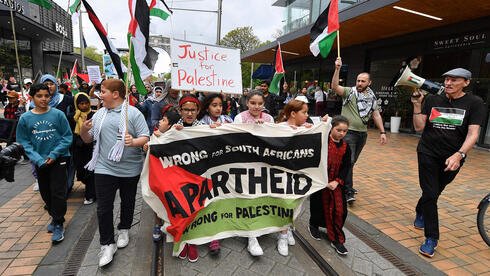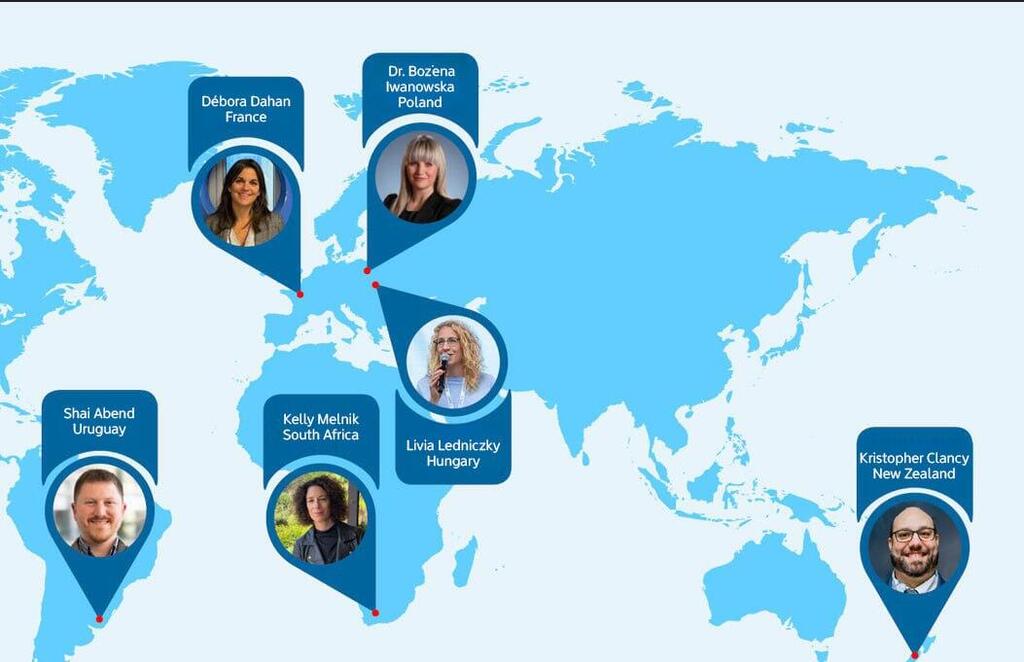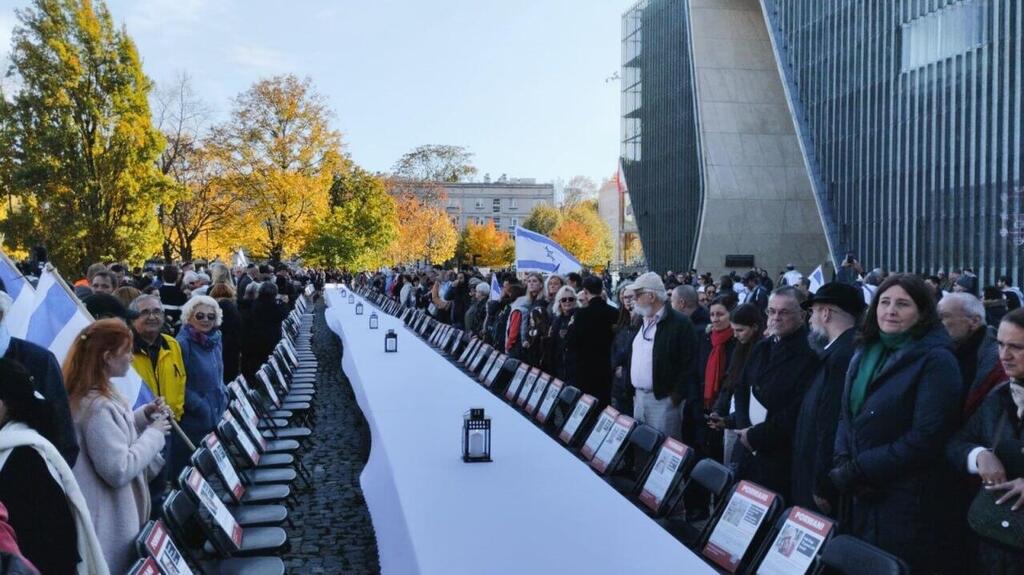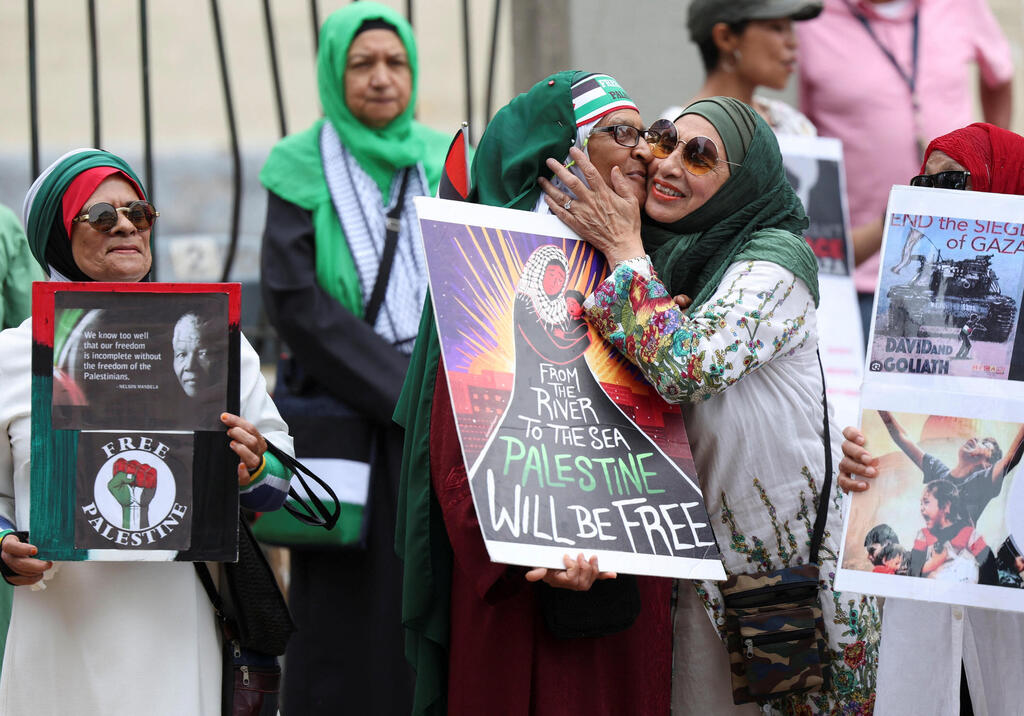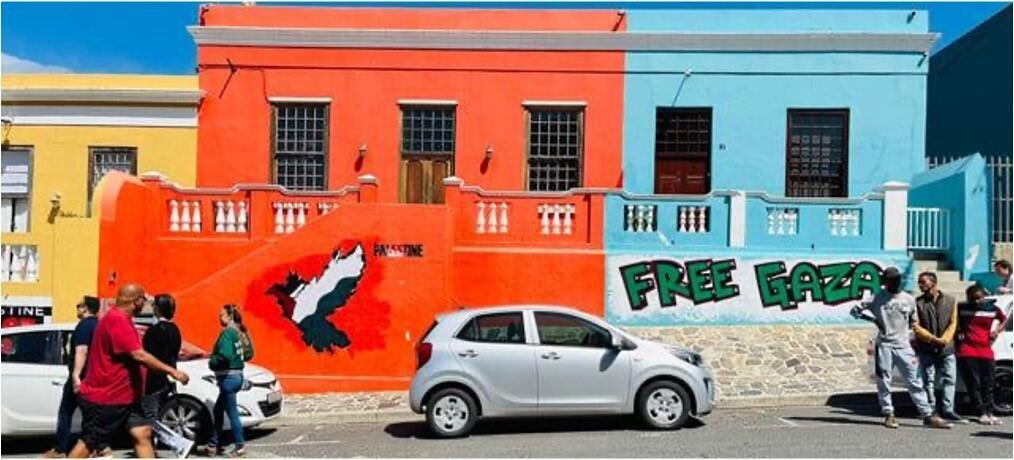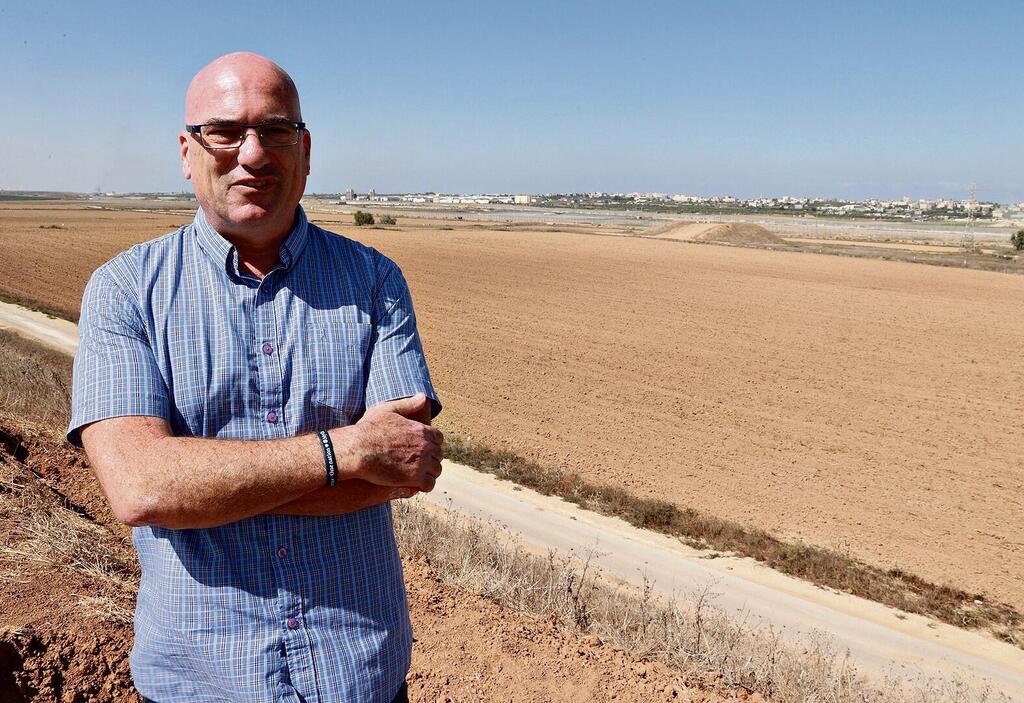In the aftermath of October 7, 2023, Jewish communities worldwide have faced shifting realities. From South Africa to Poland, Hungary to New Zealand, community leaders report varied experiences with antisemitism and reveal distinct approaches to maintaining Jewish life amid new challenges.
How do Jewish community activists perceive the wave of antisemitism that has risen worldwide since the events of October 7? Is it legitimate to compare it to the Holocaust? What can Israel do to strengthen the sense of personal security for Jews abroad? Ynetnews' sister publication Vesty posed these questions to Jewish community leaders from six countries.
All of them are participating in the international Jewish leadership program Or Ophir, named after Ophir Libstein, head of the Sha'ar HaNegev Regional Council, who fell in battle against Hamas terrorists while defending Kibbutz Kfar Aza on October 7, 2023. The program is organized by the Or Ophir Foundation and the Gesher Foundation with the aim of commemorating Libstein's work in strengthening ties between Israel and Jewish communities around the world.
Across most countries represented, community leaders report an increase in antisemitic incidents following October 7.
In New Zealand, Kristopher Clancy, Education Director for the Holocaust Centre of New Zealand, describes a dramatic shift: "Before 7 Oct, there was antisemitism in New Zealand on a low-level scale… Since 7 October, there has been an explosion of antisemitism against synagogues, the Holocaust Centre, Jewish students and teachers."
The manifestations have been disturbing, with Clancy noting, "Synagogues received hate mail with things like plastic cockroaches, or female sanitary pads that were coloured with red marker to look like blood and little notes printed saying 'how much blood will be spilled for Greater Israel.'"
In South Africa, Kelly Melnik, Chairman of the Shiri Branch of WIZO Cape Town, reports a complex situation. While antisemitic incidents initially increased, they have since "stabilized, returning to pre-October 7 levels." However, the relationship between the Jewish community and the government has deteriorated significantly. "The government has adopted an openly hostile stance toward Israel, even hosting a Hamas delegation, which has led the community to become more confrontational in response," she explains.
6 View gallery


Pro-Palestinian demonstration in Christchurch, New Zealand
(Photo: Sanka Vidanagama / AFP)
For Uruguay, Shai Abend, Director of Bereshit: The Jewish Experience and founder of the Jewish Museum in Uruguay, notes a similar pattern: "Historically, Uruguay has been considered a country that was always open to Jews… Until October 7, we used to say that in Uruguay there were a few antisemites or antisemitic incidents, but not antisemitism as an institutionalized phenomenon."
This has changed. "Since October 7, we can identify growth in antisemitic incidents, severe verbal violence on social networks, public demonstrations with antisemitic and anti-Zionist messages… and there is a sense of uncertainty and even fear among many Jews regarding the future," says Abend.
In France, the situation appears particularly severe. Débora Dahan, Director of Youth Action at the Unified Jewish Social Fund, states: "Antisemitism has been rife in France for several decades, and October 7 has amplified this phenomenon." She points to "more than 1,570 antisemitic acts recorded in 2024, for a Jewish population of less than 0.67% of the total French population."
Not all communities have experienced the same level of deterioration. In Hungary, Livia Ledniczky, Director of the Merkaz Hebrew and Israeli Cultural Centre in Budapest, notes that while "extremist voices were amplified" after October 7, the phenomenon eventually returned "to a previous average level."
In Poland, Dr. Bożena Iwanowska, Director of the Academic Center for Holocaust and Genocide Research at the University of Economics and Human Sciences, offers a notably different perspective: "From my analytical and professional point of view, the situation in Poland has remained both stable and respectful. Prior to October 7, 2023, antisemitism was neither visible in public discourse nor structurally present."
She emphasizes that "Polish society reacted with dignity, compassion and unequivocal support for Israel. Political leaders, institutions and the media swiftly condemned the violence. There were no pro-terrorist demonstrations, no antisemitic incidents and no glorification of extremism in public spaces."
The impact on personal security varies significantly by location. In Poland, Dr. Iwanowska states unequivocally: "Yes, I feel entirely safe." In Hungary, Ledniczky reports: "My personal sense of security in Budapest has not changed."
In other countries, the situation is more nuanced. Kelly Melnik from South Africa notes: "My sense of personal security has been slightly affected. I avoid entering areas and neighborhoods with a concentration of protests and pro-Palestinian presence."
Security measures have increased in some communities. Melnik explains that at her children's Jewish school, "since October 7, there has been increased security. For security reasons, the location of community events is not shared publicly, and information is provided only to those who register personally."
For Kristopher Clancy in New Zealand, the choice to display Jewish identity has become an act of defiance: "I do not feel safe wearing Jewish symbols, but I will be damned if I am going to allow that to force me to live in fear. I will live openly, proudly, as a Jew and take what comes at me. As Menachem Begin said, 'I am not a Jew on trembling knees.'"
When asked about comparing the events of October 7 to the Holocaust, community leaders expressed nuanced views that largely cautioned against direct equivalence while acknowledging parallels.
Dr. Iwanowska, a political scientist, articulates: "Comparing the events of October 7, 2023, directly to the Holocaust is problematic from both a political science and historical perspective. The Holocaust was a unique, systematically planned, Nazi German state-organized genocide, carried out over several years, involving industrial-scale methods of extermination targeting millions of people. The tragic events of October 7, while characterized by intense antisemitism and extreme brutality, more closely resemble historical pogroms."
Livia Ledniczky offers a similar perspective: "There are some important differences and similarities to consider when comparing these events, I would certainly not equate the two… Key differences include the fact that the Holocaust was a systematic genocide that lasted for years, killing around 6 million Jews across Europe, while October 7 was a horrific terrorist attack that killed around 1,200 people."
Shai Abend, drawing on his educational background, notes: "It is necessary to compare historical events in order to learn from the past; it is possible to identify similar intentions and modes of action, but the Holocaust has unique characteristics. The context of October 7 is very different, especially the fact that today Jews have an independent and strong state and army."
Kristopher Clancy, as a Holocaust educator, is particularly emphatic: "This is an incredibly dangerous link to make. The events of the Holocaust were all-encompassing and required every aspect of German and the international society to allow it to happen. The events of October 7, which bring up those horrific memories, were not the same. Israel exists, that is one of the key differences."
Despite the challenges, Jewish communities continue to observe Holocaust remembrance days through various meaningful activities.
In Uruguay, Abend describes an impressive community ceremony: "There is a central community Holocaust and Heroism Day ceremony organized by the main community, together with the Holocaust survivors organization and the Council of Zionist Youth Movements. It is a ceremony held in a hall for about 2,000-3,000 people, inviting not only Uruguayan Jews, but also the president of the country, politicians, religious figures and civil society leaders."
In South Africa, Melnik notes: "The South African Jewish Board of Deputies, in collaboration with the Cape Town Holocaust & Genocide Centre and the 3GCT Descendant Project are doing every year a ceremony of Yom HaShoah at the Jewish cemetery. Candles of Remembrance are distributed to the Jewish school pupils, each candle bearing the name of a child lost in the Holocaust."
In Poland, Dr. Iwanowska explains that "all Holocaust-related and World War II anniversaries are observed in Poland at the international level," with her personally leading educational initiatives: "In 2023, I led a seminar at BEIT Polska Jewish Community titled Never Again = Never Forget + Never Forgive, with participants from Poland, Ukraine, Belarus and the United States."
Government support for Jewish communities varies widely. While in Hungary and Poland, authorities are described as supportive, in South Africa, Melnik states plainly: "No, they do not provide it." In New Zealand, Clancy's assessment is blunt: "Local authorities are as useful as tits on a boar."
Despite these challenges, communities remain resilient. As Débora Dahan from France puts it: "The time of the fragile and puny Jew no longer exists today, we are seasoned French Jewish citizens, proud to carry the values of the republic in Jewish exemplarity. We must provide our youth with the tools to defend themselves and understand their past in order to move toward the future."
While uncertainty remains, the commitment to maintaining Jewish identity and community life persists across the Diaspora, adapting to new realities while preserving tradition and memory.
-
All participants in the article are members of newly established international Jewish leadership program Or Ophir (Light of Ophir), organized by the Or Ophir Foundation with the aim of commemorating the memory and work of Ophir Libstein, head of the Sha'ar HaNegev Regional Council, who fell in battle with Hamas terrorists while defending Kibbutz Kfar Aza on October 7, 2023.

